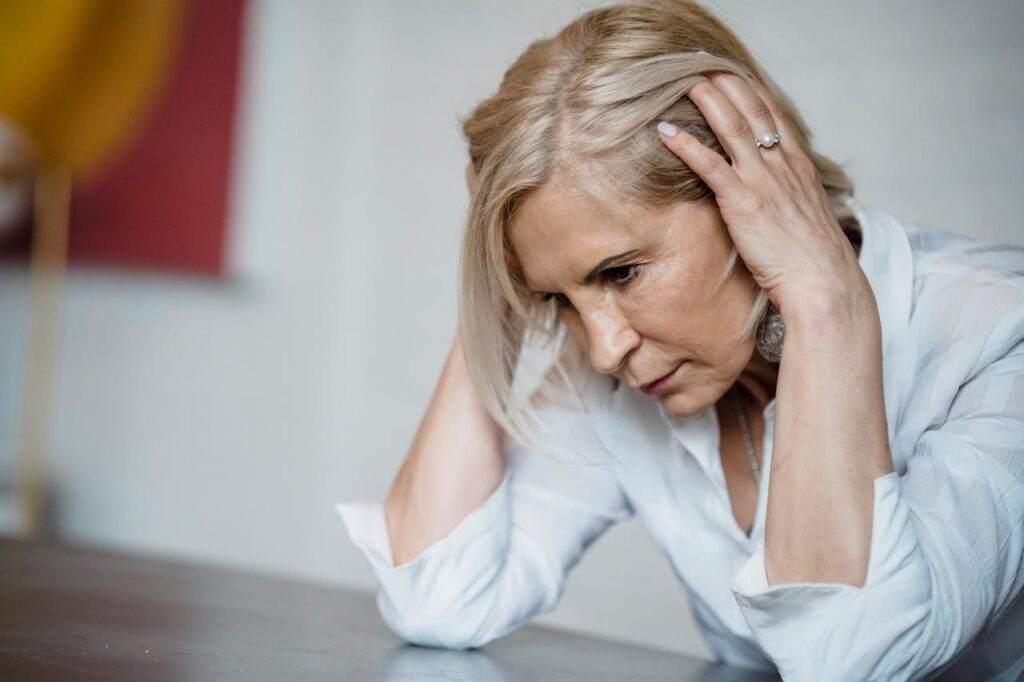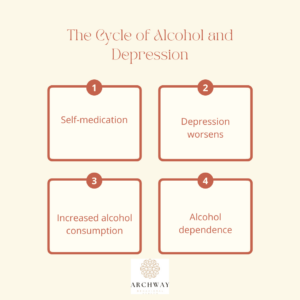While various factors contribute to depression, many individuals turn to booze as a way to cope with their feelings of sadness, loneliness, or hopelessness. Booze is a common part of social events and personal relaxation routines, but for some, it can become intertwined with mental health issues like depression. The relationship between booze use and depression is complex and often misunderstood. While it may seem like booze offers temporary relief from emotional pain, it can actually worsen depressive symptoms over time. Understanding this connection is crucial for those struggling with both conditions.
However, drinking booze can actually worsen depression and create a cycle that’s hard to break. In this blog post, we will explore how booze affects depression and why seeking help from a mental health treatment center is essential for long-term recovery.
Booze as a Depressant
This means that it slows down brain activity and affects the central nervous system. While drinking booze may temporarily make someone feel more relaxed or even happy, it ultimately lowers mood and energy levels. For people already struggling with depression, this can be especially dangerous.
Booze can interfere with the brain’s natural ability to regulate emotions, which can make symptoms of depression much worse. In the long run, booze may contribute to feelings of isolation, hopelessness, and even increase suicidal thoughts.
How Booze Affects Mental Health
Booze is a central nervous system depressant, which means it slows down brain activity. While drinking may initially create feelings of relaxation or euphoria, its long-term effects can include:
- Lowered mood: Booze can disrupt the balance of neurotransmitters in the brain, such as serotonin and dopamine, which play a key role in mood regulation. This can lead to increased feelings of sadness or hopelessness.
- Impaired judgment: Booze reduces inhibitions and impairs decision-making, which can lead to risky behaviors or exacerbate emotional problems.
- Sleep disruption: Although booze may make you feel sleepy, it disrupts the quality of sleep, leading to fatigue, irritability, and worsening of depressive symptoms.
The Cycle of Booze and Depression
Many individuals who struggle with depression may use booze as a form of self-medication. They may drink to numb their emotions or to escape overwhelming feelings of sadness or anxiety. However, instead of helping, booze creates a harmful cycle.
Here’s how the cycle works:
- Self-medication: A person drinks to temporarily alleviate feelings of sadness, anxiety, or hopelessness.
- Depression worsens: Over time, regular booze use interferes with brain chemistry, exacerbating depression.
- Increased booze consumption: As depression worsens, the person may increase their booze intake, believing it will continue to numb emotional pain.
- Booze dependence: Eventually, this can lead to dependence on booze to cope with emotions, which further intensifies both depression and physical health issues.
After the initial effects of booze wear off, individuals often feel even more depressed than they did before drinking. This can lead to more drinking, creating a vicious cycle that is hard to escape. Without the proper depression therapy, this pattern may worsen over time, leading to severe mental health problems.
Booze and Anxiety Disorders
For individuals who experience anxiety alongside depression, booze can also be a harmful trigger. It is common for those with anxiety disorders to reach for booze as a way to calm their nerves. However, booze only provides temporary relief. Once it wears off, anxiety often comes back stronger.
In many cases, professional help is needed, such as therapy for anxiety disorders offered by mental health treatment services. These therapies help individuals learn healthier ways to cope with anxiety without relying on booze or other harmful substances.
Why Booze Is Not a Solution
It’s a common misconception that booze can help people “feel better” when they are down. While booze may provide a brief escape from reality, it ultimately deepens the problem. People with depression who drink booze are more likely to experience a worsening of their symptoms.
Additionally, booze can interfere with medications prescribed for depression and anxiety, making them less effective. This is why it’s crucial for individuals to seek professional help through a depression treatment program rather than trying to manage their symptoms with booze.
Recognizing the Signs of Booze-Induced Depression
Booze-induced depression is a serious concern that requires professional intervention. Some signs that booze use may be contributing to or worsening depression include:
- Increased feelings of hopelessness or sadness after drinking
- Difficulty managing emotions when not drinking
- Using booze to cope with stress or negative emotions
- Isolation from friends or family due to drinking habits
- Decreased interest in activities that were once enjoyable
Booze and Co-occurring Mental Health Conditions
Depression is not the only mental health issue affected by booze use. Individuals with conditions such as anxiety, bipolar disorder, or trauma-related disorders are also at a higher risk of developing problems with booze. For example:
- Anxiety: Booze may temporarily reduce anxiety, but it can lead to increased anxiety when not drinking. This can result in a cycle of dependency as individuals drink to relieve anxiety but ultimately experience worsening symptoms.
- Bipolar Disorder: Booze use can trigger manic or depressive episodes in individuals with bipolar disorder, making it harder to manage the condition.
- Trauma: Those with a history of trauma, such as PTSD, may use booze to numb painful memories or emotional distress, but this often prevents them from processing their trauma effectively.
Why Professional Help is Crucial
Untreated depression and booze use can have serious consequences, including worsening mental health, strained relationships, and physical health problems. Professional treatment provides the tools and support needed to break the cycle of booze dependence and manage depression in a healthier way.
Breaking the cycle of booze and depression is not easy, but it is possible with the right support. Many mental health treatment centers offer specialized programs designed to help individuals address both their mental health and substance use issues. These programs, such as a partial hospitalization program (PHP) or an intensive outpatient program (IOP), provide structured care and support to help individuals regain control of their lives.
- Partial Hospitalization Program (PHP): PHP offers more intensive care than traditional outpatient services but doesn’t require overnight stays. It’s ideal for individuals who need a higher level of care but still want the flexibility to go home at the end of the day.
- Intensive Outpatient Program (IOP): For those who may not need the full intensity of PHP, an IOP offers comprehensive support while allowing individuals to maintain their daily responsibilities, such as work or school.
Both programs can be incredibly helpful for individuals struggling with depression and booze use. These programs combine therapy, counseling, and support from medical professionals to help individuals learn how to manage their mental health without turning to booze.
Contact Archway Behavioral Health Today
If you or a loved one is struggling with depression and booze use, you don’t have to face it alone. Contact Archway Behavioral Health today to learn more about our comprehensive mental health treatment services and start your journey toward recovery.
Conclusion
Booze is not a solution for depression. In fact, it can make symptoms of depression much worse and create a harmful cycle that’s difficult to break. If you or someone you love is struggling with depression and booze use, it’s important to seek help from a mental health treatment center that offers a comprehensive depression treatment program.
Through the right combination of therapy, counseling, and structured care, individuals can overcome the damaging effects of booze and reclaim their mental health. If you’re considering treatment, explore options like therapy for anxiety disorders, intensive outpatient programs, or partial hospitalization programs to find the right path to recovery. Seeking professional help is the first step towards long-lasting healing and a brighter future. Reach out today at (888) 488-4103 and take the first step towards hope and healing.
FAQ on Booze and Depression
How are booze and depression connected?
Booze is a depressant that can disrupt brain chemistry, leading to or worsening feelings of sadness and hopelessness. While it may provide temporary relief, long-term booze use often deepens depressive symptoms.
Can booze cause depression?
Yes, heavy or prolonged booze use can lead to depression by altering brain chemistry and disrupting neurotransmitter balance. Booze-induced depression can occur even in individuals with no prior history of depression.
Why do people with depression turn to booze?
Many people with depression use booze as a form of self-medication to numb emotional pain or stress. However, this approach often backfires, as booze worsens depressive symptoms over time.
What are the dangers of using booze to cope with depression?
Using booze to cope can lead to dependence, worsen mental health symptoms, increase the risk of self-harm or suicide, and negatively impact relationships and physical health.
How can I tell if booze is making my depression worse?
Signs that booze is worsening depression include increased sadness after drinking, using booze to manage emotions, social isolation, and a growing dependence on booze for coping with stress.
What treatments are available for people struggling with booze use and depression?
Treatments include Cognitive Behavioral Therapy (CBT), Dialectical Behavior Therapy (DBT), individual and group therapy, and comprehensive programs like Partial Hospitalization (PHP) and Intensive Outpatient Programs (IOP).
Can depression improve if I stop drinking booze?
Yes, stopping booze use can help improve depressive symptoms, but it’s important to seek professional help to address both conditions simultaneously for long-term recovery.
What role does professional treatment play in recovery from booze use and depression?
Professional treatment addresses the root causes of both booze use and depression, providing individuals with coping strategies, emotional support, and medical care to help manage and overcome both conditions.



